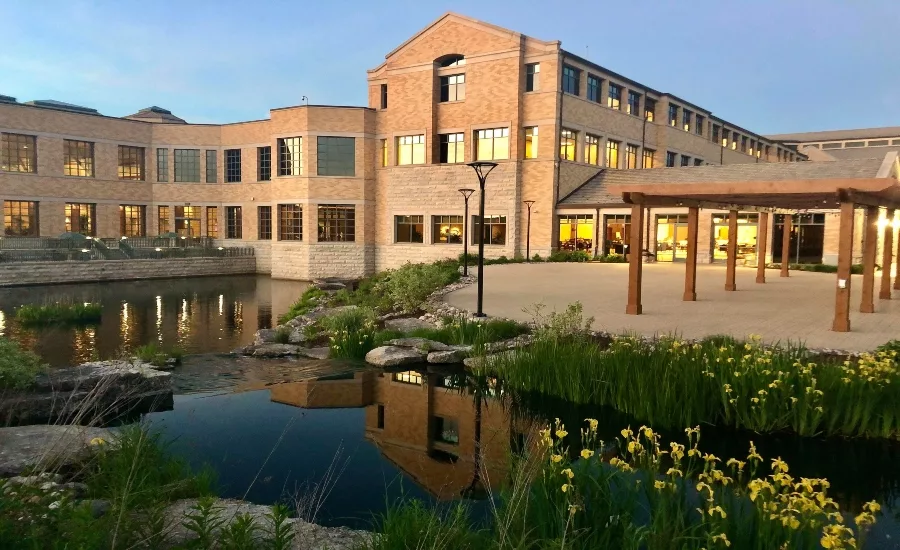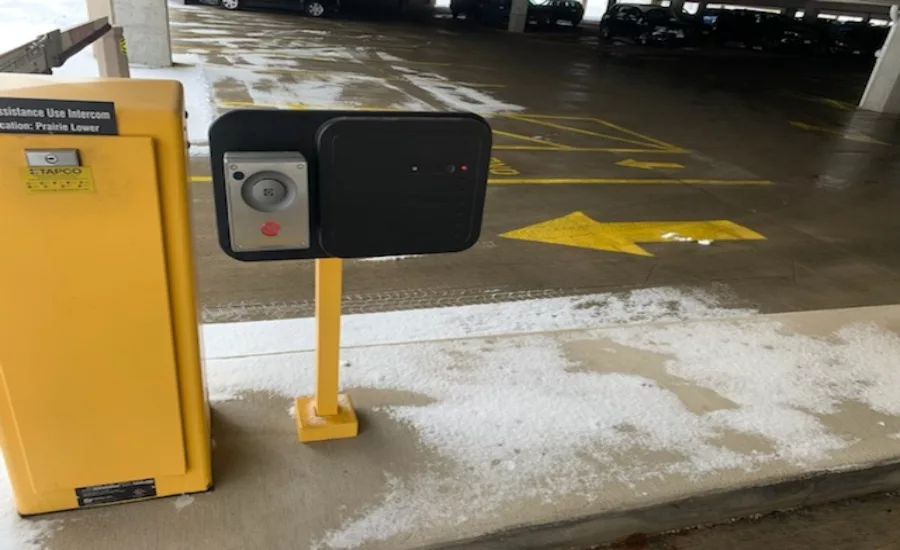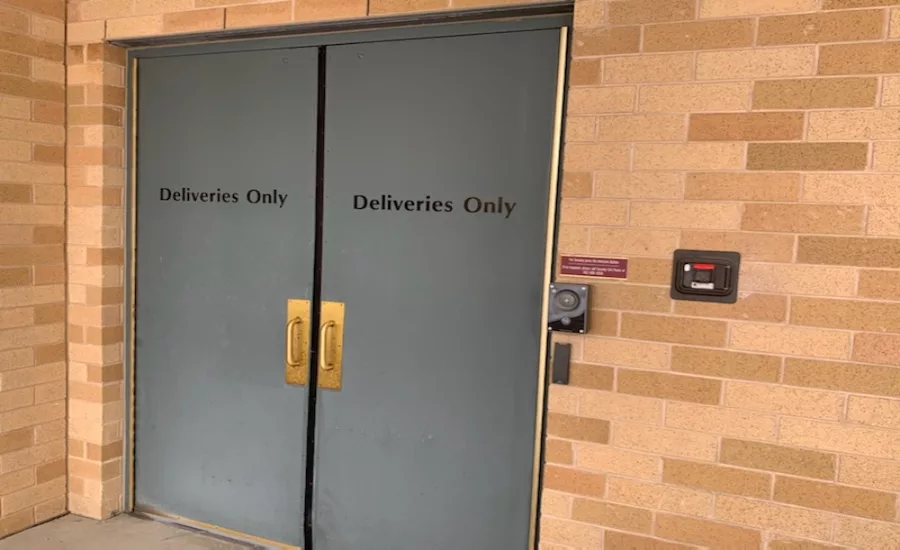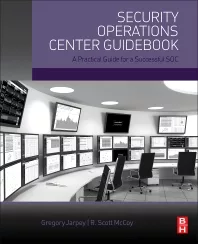West Bend Mutual Insurance deploys intercom solutions for security operations
Case Study

Image courtesy of Zenitel and West Bend Mutual Insurance

Image courtesy of Zenitel and West Bend Mutual Insurance

Image courtesy of Zenitel and West Bend Mutual Insurance
In what seemed like overnight, the COVID pandemic altered how we live – from how we socially interacted to how and where we spend personal time, travel and more.
Our workplaces changed, as well. The global pandemic forced many businesses to set up remote offices for their employees to keep employees and their families safe and try to stop the spread of the virus.
West Bend Mutual Insurance (WBMI) in West Bend, Wis., just outside of Milwaukee, also experienced a change in its workplace culture due to the pandemic.
The 125-year-old company, which provides insurance coverages and services to home and auto owners, as well as business owners in all 50 U.S. states, operates its headquarters on 160 acres of prairie land in West Bend, with remote offices throughout the U.S. where many of its 1,200+ associates work from most of the time.
Eric Biernat is Corporate Security Manager at WBMI. He has been in security management for more than 27 years. His previous security roles were with the city of Milwaukee, the Metavante Corporation, the Medical College of Wisconsin, and Rockwell Automation. He has a Master of Science in Business in 2010 from Cardinal Stritch University, and he earned the Certified Protection Professional (CPP) credential from ASIS in 2009.
His security team is a blend of in-house and contract personnel at three campus locations in Wisconsin – five security team members are in-house, and six are contracted employees, all of whom help Biernat mitigate security and safety risks with the help of intelligent communication solutions.
“As a licensed insurer in all 50 U.S. states providing property and casualty coverage, WBMI receives occasional threats from insureds and third-party claimants who are dissatisfied with the outcome of their claim,” Biernat says. “As a result, due to COVID, we made a conscious decision to secure the perimeters of our facilities and to limit the number of access-controlled entrances. Our business model precludes onsite transactions; however, customers and business partners still want to come to our physical locations.” According to Biernat, the use of intercom solutions helps his security team discern who is attempting to gain access.
Biernat has always employed intercom solutions as part of his security strategy at WBMI, including video surveillance, access control solutions and more. Last year, before the COVID-19 pandemic reached U.S. borders, he decided to replace his intercom solution with intelligent communication systems from Zenitel.
“I was looking to replace the existing system because I had some operational concerns with it,” Biernat explains. “I was also looking for a solution that could integrate with our other security systems, specifically our Software House (CCURE 9000) access control and event management. Specifically, I wanted to create a platform that would help us with situations where, for example, we could vet and give a delivery driver access to our facility without our security team physically being present to let them in.”
He continues, “After vigorous project planning with our network team, integrator, and Zenitel engineers, all aspects of the project design were covered. Anything from integration with our access control platform (CCURE 9000) to allowing forwarding to mobile officers from door stations were considered.”
At the WBMI West Bend location, Biernat installed Zenitel IP TCIV-2 and TCIV-3 intercom stations and I.P. Network Horn/Loudspeakers and TCIV-3 intercom stations at the Pewaukee, Wis. facility. All I.P. stations in the Zenitel Turbine series feature H.D. voice quality, Open Duplex, Active Noise Cancellation, a MEMS microphone, a 10W Class D amplifier, and a speaker grille design. The IP Horn/Loudspeakers features include a built-in web server for status information, control and upgrade. The speakers also have advanced supervision functions, such as the ability to detect if there are any faults in the network or speaker electronics. All speaker broadcasts are logged in detailed reports using the Vingtor-Stentofon AlphaCom audio server.
Shortly after the intercom solutions were installed at key indoor locations, a parking garage entrance and shipping areas, non-essential workers were asked to work remotely due to social distancing guidelines from COVID-19. “We only kept 40-50 employees (from 1,200) working onsite for a long time,” Biernat says. “Our business primarily still works with paper documents, including handling and mailing of policies, so they were deemed critical to our business cycle. In 48 hours, we moved all of that to a large hall in another facility and set up a temporary operation. Our security team had to take access control that belonged to 1,200 people and reduce it to 40.
“That’s where the intercoms helped us,” he adds. “We still had to secure our facility with much stricter ‘rules’ of whether or not someone could access our facility. Our old intercoms didn’t have the video clarity that the new intercoms have. But now, we have the ability to see and hear all individuals before they get into our environment. That knowledge allows our security team to do a quick threat analysis.”
The intercom solutions are being used more than ever, as most employees are back physically working in the West Bend and Pewaukee locations, Biernat says. “The new units are far superior to technology I have employed previously,” Biernat adds. “The clarity and noise-canceling abilities are fantastic. The ability to hear and see individual callers at vehicle entry gates and perimeter doors greatly enhanced our security team’s ability to vet visitors and determine if they have a valid business need to be on the property.”
Looking for a reprint of this article?
From high-res PDFs to custom plaques, order your copy today!






